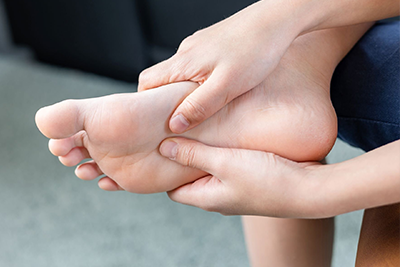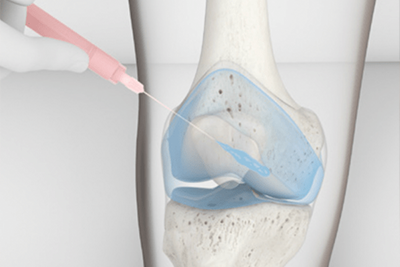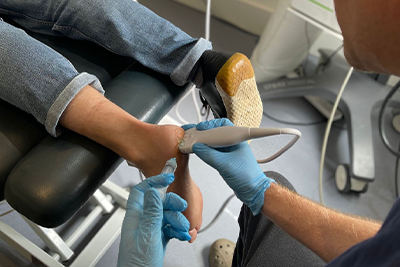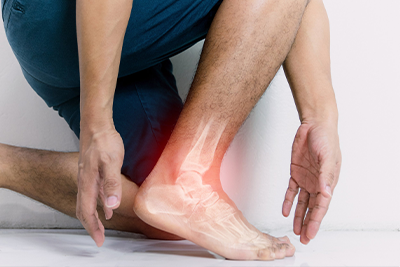Neck Pain
- Home
- Neck Pain

Chiropractic Treatment for Neck Pain in Tunbridge Wells
Neck Pain and How Chiropractic Can Help
One of the most common ailments in modern life today is neck pain. A recent report highlighted that there has been an increase in neck and back pain problems in recent years. A lot of that is largely down to our sedentary lifestyles. According to the President of the British Chiropractic Association, Catherine Quinn: “Building strength and flexibility through regular movement, stretching and moderate exercise also means that you can prepare your body to deal with more strenuous activities such as lifting and carrying.” The neck is actually one of the most vulnerable parts of the body. Everyone’s heard of whiplash, for instance, where a sudden impact damages the ligaments, muscles, nerves or bones of the neck area. But just as many neck pain problems are caused by lack of exercise, poor diet and not paying enough attention to our posture. Although a pain in the neck certainly isn’t a rare complaint, it shouldn’t be accepted as a normal problem that you simply need to “manage” in your day-to-day life. Our team here at Tunbridge Wells Chiropractic and Shockwave Clinic can work with you to treat your neck pain at the source. So once you’ve made the call and booked your first appointment, what can you expect? Well, first we’ll welcome you into our clinic and invite you to have a friendly discussion with a member of our team like Andrew Bowden — one of our in-house chiropractors and an expert in musculoskeletal complaints. This chat will help us gain a clearer understanding of both you and your overall health. We’ll also conduct a neurological and orthopaedic examination to help us determine the source of your pain. It is important that you feel comfortable, relaxed and calm when you visit us, so we encourage you to dress comfortably. If, like many people, you are apprehensive about seeking medical help or visiting a health professional, we will take every step to put you at ease. Our neck pain treatments can include manipulation and mobilisation, as well as soft tissue techniques. We will also advise you on ways you can treat your neck pain yourself in between sessions with careful exercises and the application of ice and heat.A Quick Guide to the Neck
For such as small area, the neck can cause a lot of pain. Its proper name is the cervical spine and it’s the area that runs down from the base of the skull in a series of 7 vertebrae to the thoracic spine at the top of the shoulders. The neck has a number of vital functions:- It protects the spinal cord which sends messages back and forth to the brain.
- It supports the head and all its movement.
- It allows the blood to flow to the brain.
What Causes Neck Pain?
At our chiropractic clinic in Tunbridge Wells, we often see patients with neck pain caused by a range of different factors. Some are down to simple wear and tear, others occur following an injury of some sort. Here are the most common:Facet Joint Sprain
Your neck is basically like a chain with each vertebrae connected by a facet joint. If one of these becomes injured or inflamed it can result in a painful muscle spasm. Regular minor traumas to this area can occur over time. For instance, if you lift heavy objects often, this may well cause small amounts of damage that eventually build up to cause a facet joint sprain with neck pain. Bad posture sitting at a desk can also be a contributory factor. Then there’s more direct trauma such as a whiplash injury during a car accident. The first thing your chiropractor will seek to do when presented with this type of neck pain is to focus on relieving the muscle spasm. This involves a gentle manipulation which should ease the pain and make you feel better. The next step is to work to build up the muscles and make them stronger, hopefully ensuring your spine is more stable. This will include certain exercises as well as paying attention to your posture.Muscle Strain in the Neck
This is another common neck pain problem that we come across and it is most often caused by something like whiplash. The name is very apt because the injury is caused by a sudden movement of the head. You might think we only see people who have been in car accidents but that’s not the case. Whiplash can be the result of overdoing it on the sporting field as well or even because of an accident at work. Generally, what happens when your neck snaps back and forward during a whiplash event is that the muscles and ligaments get damaged or torn. There are discs between the vertebrae and these can also rupture or bulge and there may be damage to the bone as well as the nerves which get stretched or trapped. All this puts the individual in a good deal of discomfort and pain. The symptoms, however, can take a while to manifest and become a problem. The injury often moves beyond simple pain in the neck area to blurred vision, dizziness and even ringing in the ears. This is a condition that may require long-term treatment. Your chiropractor will use a range of techniques including massage and hot and cold packs as well as strengthening exercises to help relieve the pain and repair the damaged area.Cervical Spondylosis
This is generally an age-related neck condition and usually affects those over 50. Symptoms can vary in severity but include shoulder and neck pain as well as headaches. A GP will normally prescribe painkillers if required as well as recommending exercises, some form of physiotherapy or chiropractic help.Other Causes of Neck Pain
There are a whole host of other problems that lead to neck pain. One common complaint is a trapped nerve, caused by simple wear and tear or a disc injury. If you have a condition such as osteoarthritis, you might suffer from what is called cervical central stenosis which is where pressure is put on the spinal cord because of a narrowing of the canal made by your vertebrae. Chiropractors are not always the first port of call for certain types of neck injuries. A central stenosis, for instance, is very serious and will require you to have a MRI scan to see exactly what the problem is. Your specialist may well feel that you have only a slight compression and that surgery is not the answer, in which case chiropractic may well be the right option. In other circumstances, surgery may be the way forward.The Importance of Proper Neck Pain Diagnosis
Because it is such a sensitive area of the body, any issue with the neck needs to be investigated properly. That’s why chiropractors train for years to be able to identify specific conditions and diagnose patients properly. Before you begin any treatment for neck pain, your chiropractor will undertake a full assessment which will include examining you and taking a full history. If they feel it is necessary, you will be referred for other tests before commencing any treatment. This can include having blood taken, an MRI scan, or X-ray. Most of us suffer from neck pain at some point and, for many, this generally goes away within a few days. If your pain is persistent, however, it could be that there is an underlying problem that requires treatment.How to Reduce the Risk of Neck Pain
The simple answer is to lead as healthy a lifestyle as possible. Getting regular exercise, eating properly and keeping an eye on our posture can all help. We spend lots of time hunched over computers, driving long distances, picking up heavy objects without the right technique, or generally not looking after ourselves as well as we should. A few simple changes here and there can make a big difference. Of course, there are also traumatic events that can cause neck injury and it’s not always possible to safeguard against these. If you do have neck pain, it’s important to get a proper diagnosis and treatment as soon as you can. At our chiropractic clinic in Tunbridge Wells, we have plenty of experience in helping our patients overcome neck pain. Contact us today to book an appointment. Neck pain usually starts suddenly and often starts to feel better after a few days. However, if your neck pain doesn’t go away or it gets worse, you may need treatment. There are different types of neck pain, each has different causes- Simple (or uncomplicated) neck pain is the most common type of neck pain. It might be caused by bad posture, stress, sleeping awkwardly or strain to your neck muscles and ligaments. Neck pain may also be caused by wear and tear of the bones and discs in your neck.
- Neck pain with nerve involvement (Radiculopathy) is when a nerve is being compressed or injured as it comes out between the bones in the neck. With this type of neck pain you may feel numbness, weakness, or tingling in your arm or hand.
- Whiplash is common after car crashes and sports injuries when your head is suddenly jolted backwards and forwards in a whip-like movement. Your neck muscles and ligaments stretch beyond their normal range which may cause a sprain.
What will we do if you present with neck pain?
To rule out serious causes of neck pain we will perform an orthopaedic and neurological examination. We might need to refer you for an X-ray of your neck, a CT scan, or an MRI scan. If an inflammation or infection is suspected we will refer you for blood tests.How do we treat neck pain?
There are many techniques to treat different types of neck pain- Manipulation or mobilisation: manipulation is safe if you are treated by a trained chiropractor. However, there have been very rare cases of people getting damage to blood vessels, or even strokes, after manipulation involving sharp thrusts to the neck.
- Soft tissue techniques such as specific massage to tight muscles and trigger-point therapy for very tender spots in the muscle.
- Exercises to strengthen your neck muscles and improve your flexibility by stretching tight muscles.
- Use of hot and cold packs
- If the pain is uncontrolled we will refer you to your GP or a pharmacist for advice on painkillers.
Clinic Address
Vale Health Clinic, 31-33 Vale Rd, Royal Tunbridge Wells, Kent ,TN1 1BS
























